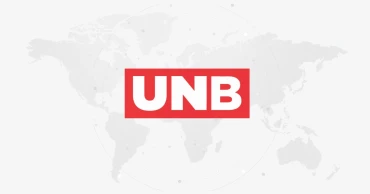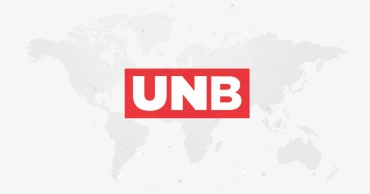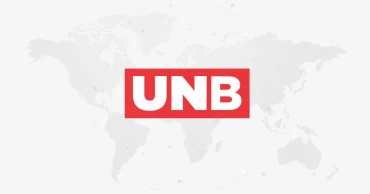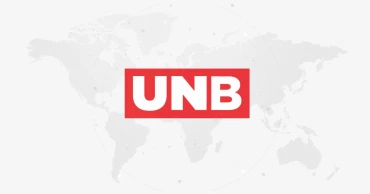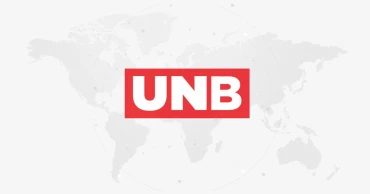waste management
World Bank approves $370m to improve waste management, restore Dhaka rivers
World Bank’s Board of Executive Directors has approved $370 million in financing to improve sanitation and solid waste management services in Dhaka and nearby areas, aiming to cut water pollution and restore rivers and canals.
The support will fund the Metro Dhaka Water Security and Resilience Program, which seeks to strengthen the capacity of local and national institutions to tackle water pollution in greater Dhaka.
The region accounts for about half of the country’s formal employment and nearly one-third of its GDP, said a press release on Wednesday.
The programme will introduce a result-based system to help city corporations and the Water Supply and Sewerage Authority (WASA) deliver measurable improvements.
Under the project, 550,000 people will receive safely managed sanitation services, while 500,000 people will benefit from improved solid waste management. Priority will be given to communities most affected by pollution and service gaps.
“Waterbodies are the lifeline for millions of people in greater Dhaka. But rapid and unplanned urbanisation and industrial growth have outpaced the city's capacity to manage wastewater and pollution, affecting public health, the environment and the economy,” said Jean Pesme, World Bank Division Director for Bangladesh and Bhutan.
He said the programme would help build the institutional foundations needed to reduce pollution and gradually restore the health of Dhaka’s rivers and canals.
Dhaka faces serious wastewater and water pollution challenges and about 20 percent of residents are connected to a piped sewer system, while just 2 percent use functional fecal sludge management services, said the press relesae.
More than 80 percent of untreated wastewater and sewage is discharged into the city’s interconnected waterways.
Over half of Dhaka’s canals have either disappeared or become clogged, worsening pollution and reducing water flow.
To address these problems, the programme will take a comprehensive approach involving the public and private sectors, as well as city corporations. It will improve service delivery, strengthen regulations and help revive rivers and canals by reducing pollution and restoring flow capacity.
Industrial pollution remains a major concern. Around 80 percent of export-oriented garment factories are located in Dhaka, and more than 7,000 factories discharge an estimated 2,400 million litres of untreated wastewater into waterways each day. This contributes to skin diseases, diarrhoea and neurological conditions.
The programme will encourage private sector participation, particularly from industries in and around Dhaka, to scale up industrial effluent treatment and water reuse to improve water efficiency and reduce pollution.
“The programme is part of a multi-phase, long-term engagement supporting Bangladesh’s broader water security and resilience agenda,” said Harsh Goyal, World Bank Senior Water Supply and Sanitation Specialist and Task Team Leader of the project.
He said this phase would focus on reducing pollution discharge into Dhaka’s water bodies, strengthening monitoring and regulatory systems, introducing a comprehensive water quality index for Dhaka’s rivers, establishing digital real-time pollution monitoring and preparing integrated restoration plans for four major rivers around Dhaka.
In the first phase, the programme will cover selected areas in Dhaka and Narayanganj.
It will expand primary waste collection services, especially in underserved communities near major canals and rivers, and upgrade recycling systems.
10 days ago
Routine clean-up drive triggers eviction fear among Kusumpur Bazar traders
A routine waste clean-up announcement has sparked deep anxiety among traders at Kusumpur Bazar in Maheshpur upazila, with many fearing that the initiative could be used as a pretext to evict long-standing businesses from the market.
Traders alleged that the newly appointed market lessee, backed by a section of local influencers, is attempting to exploit the clean-up drive to dismantle selected shops and gain control of valuable government-owned khas land.
According to local sources, Kusumpur Bazar has grown over the years on both private and government land.
Many traders have been operating for decades after constructing shops on khas land, while some private landowners have also expanded their establishments by encroaching on adjoining government land.
Read more: Master plan soon for waste management in divisional cities, municipalities : Rizwana
For years, waste has been dumped on a stretch of khas land on one side of the market.
Last Friday, the Kusumpur Land Office carried out a miking campaign, announcing that the accumulated waste would be removed.
Traders, however, claimed the announcement was made strategically, raising fears that it could pave the way for selective evictions rather than a neutral clean-up operation.
Several traders alleged that under the guise of waste removal, certain individuals were attempting to seize control of prime khas land in collusion with a section of the local administration.
Local sources further alleged that pharmacy trader Zulfiqar Ali Zulu was involved in efforts to take over government land within the market area.
They also claimed that a number of businessmen, including Shamsul Haque Bado, Jalal Uddin Biswas, Qutub Uddin Biswas, Mohiuddin Biswas, Siddiqur Rahman, Anarul Master, Masud Ali, Md Nayan, Salauddin Jewel, Md Rahman, Jahangir Ali, Montu Mandal, Momin Rahman, Farzan Ali and Rabiul Islam Robal, have constructed shops by occupying portions of khas land.
Read more: DNCC to develop modern waste management system beside existing Amin Bazar LFS
Traders argued that if these lands or establishments had been formally allocated, the government could have earned revenue worth crores of taka.
Speaking on condition of anonymity, several traders said that many people are currently benefiting from the occupation of khas land in the market.
They stressed that any eviction drive must be fair and uniform.
“Targeting only a few shops will create tension and may lead to clashes in the market,” one trader warned.
Responding to the allegations, Zulfiqar Ali Zulu said that the occupation of khas land has existed for years, while some parts of the land remain unused or controlled by only one or two individuals.
He argued that reclaiming unused land could allow for the construction of new shops and categorically denied all allegations against him.
Assistant Officer of the Kusumpur Land Office, Zulfiqar Ali, said the miking campaign was conducted solely to remove waste and dirt from the market area.
He said the district administration plans to carry out similar clean-up drives across all upazilas, including all markets in Maheshpur.
“There has been no announcement or instruction to evict any shops,” he said, adding that some shops built on khas land adjacent to the market would be surveyed to ensure compliance with existing regulations.
Read more: Jhenaidah’s heritage sites: Glory fading into dust
Assistant Commissioner (Land) of Maheshpur Upazila, Istiak Ahmed, also dismissed fears of land grabbing under the pretext of waste removal.
“There is no scope to occupy land in the name of cleaning. The matter will be communicated to the Kusumpur Land Office to ensure that no one illegally occupies government land," he said.
1 month ago
Master plan soon for waste management in divisional cities, municipalities : Rizwana
Environment Adviser Syeda Rizwana Hasan on Tuesday said a master plan will be formulated for modern waste management in all divisional headquarters and municipalities under the Bangladesh Climate Development Partnership (BCDP).
“To reduce urban temperatures, especially in Dhaka, greening initiatives will be undertaken,” Rizwana said at a meeting at the Secretariat with a delegation from the Asian Development Bank (ADB) which reviewed the progress of the BCDP.
Besides, efforts will be made to repair vulnerable embankments in coastal areas, she added.
The adviser added that safe and clean water facilities will be ensured for coastal communities with support from various development partners under the BCDP, she said.
She said necessary steps will be taken to enhance the professional skills and knowledge of officials to effectively tackle climate risks.
Graduation: Bangladesh remains confident; Dr Yunus orders precautionary measures
A working group will be formed to outline the BCDP’s operational strategies and determine the next steps, Rizwana said adding that she has instructed relevant authorities to launch the BCDP website and other activities by July.
Environment Secretary Dr Farhina Ahmed, Additional Secretary (Climate Change) Dr. Fahmida Khanom, and ADB’s Senior Climate Change Officer Mousumi Parvin, along with other senior officials from the bank, were present at the meeting.
10 months ago
Shipbreaking must not continue at the expense of human lives: Rizwana
Environment Adviser Syeda Rizwana Hasan has called for stricter enforcement of environmental laws and greater accountability in Bangladesh’s shipbreaking industry.
Speaking at a workshop on the National Regulatory Framework for Ship Recycling and Hazardous Waste Management in Bangladesh, held on Sunday at Hotel Intercontinental in Dhaka, she warned that without urgent reforms, the country risks becoming a global dumping ground for hazardous waste.
Highlighting the human and environmental costs of the industry, she stressed that shipbreaking must not continue at the expense of human lives.
The adviser urged the authorities to strictly enforce High Court directives prohibiting shipbreaking on tidal beach areas, asserting that these rulings must be integrated into national regulations. "We cannot justify keeping this industry alive if it fails to meet global safety and environmental standards. I am willing to work with the Ministry of Industry to develop regulations that protect Bangladesh from becoming a toxic waste dump and safeguard our workers from unknown hazards. The directives of the High Court, upheld by the Supreme Court, cannot and must not be ignored," she added.
She also drew attention to the dangerous working conditions in the shipbreaking industry, where workers are often exposed to life-threatening hazards without adequate protection.
She compared shipbreaking to Bangladesh’s garment sector, pointing out a stark difference: "In the garment industry, foreign buyers ensure that labor standards are met. In contrast, shipbreaking owners evade their legal responsibility for cleaning up hazardous waste, sending ships to Bangladesh under false certifications." She emphasized that the issue is not merely about ships carrying waste but about the toxic materials embedded in their structures—materials that Bangladesh lacks the capacity to safely manage.
The Adviser also questioned why Bangladesh, which sources most of its iron demand through billets, must continue relying on shipbreaking for a fraction of its iron supply despite the severe risks involved. She criticized weak regulations that allow hazardous waste to be dumped in Bangladesh, stating, "The effectiveness of legislation in global trade depends on how all stakeholders fulfill their roles. If exporters and shipowners do not adhere to international regulations, expecting a country with weak enforcement like Bangladesh to manage the consequences is unrealistic."
Syeda Rizwana Hasan underscored the need for credible legal regulations on waste declarations, warning that workers dismantling these ships remain unaware of the toxic risks they face.
Shipbreaking yards should set signboards warning workers of cancer risks in multiple languages.
Emphasizing the "polluter pays" principle, she argued that waste generators must be held responsible for their disposal. However, she noted that instead of enforcing accountability, the industry is being "greenwashed" and legitimized under weak regulations.
Most vessels arriving in Bangladesh originate from small island states, though they were originally owned by European companies. Before being sent here, these companies change the ships' registration in a practice known as "flag of convenience", allowing them to evade legal responsibility. "Would any European country allow shipbreaking on their own beaches? Why should the standards be different when workers' lives are at stake?" she asked.
The Adviser also criticised the Ministry of Industry for permitting shipbreaking despite ongoing environmental violations. She revealed that certain yards continue to operate without valid environmental clearance and noted that a serious worker injury was reported as recently as February 3rd. "Whose interests are we protecting when drafting regulations?" she questioned.
"There are international laws holding polluters accountable, but in Bangladesh, shipowners and breakers control the narrative, often using regulatory loopholes to disguise hazardous practices."
1 year ago
DNCC to develop modern waste management system beside existing Amin Bazar LFS
A move is underway to acquire a 50-acre piece of land by the Dhaka North City Corporation (DNCC) to develop a modern waste management facility alongside the existing Landfill Site (LFS) in the city’s Amin Bazar area.
According to official sources, the new site will be an expansion of the current LFS, which was also developed on 50 acres of land.
The current LFS in Amin Bazar is close to being filled up with the waste collected from the areas under DNCC.
“The LFS in Amin Bazar is overfilled and went to 80 feet high from the level. Now it has become risky for workers to further fill the land with waste,” Captain Mohammad Fida Hasan, Chief Waste Management Officer of the DNCC, told UNB.
DNCC completes sacrificial animal waste removal on second day of Eid
He said the DNCC has completed all the necessary procedures to receive the land from the district administration once the allotted fund is released by the Finance Ministry.
The DNCC will need Tk 450 crore from the GoB (Government of Bangladesh) fund to acquire the land.
Fida Hasan also informed that the new LFS will be developed alongside the establishment of the proposed 42.5 MW Waste-to-Energy power plant which is expected to start power generation from July 2026.
When such a power plant is being developed as part of the waste management system, why is such a new LFS required?-responding to such a question, the DNCC Chief Waste Management Officer said that the new site will have different facilities like electronic waste management, medicate waste treatment, and solid waste management.
This will require new land to develop the facilities, which also include establishment of a training centre and vehicle parking area.
Currently, Dhaka city is collecting 3,000 mts of solid waste from different areas which is about 80 percent of the total waste.
DNCC completes 100% removal of sacrificial animal waste within deadline
As per a plan, this total waste will be supplied to the Waste to Energy project daily while CMEC will set up an incineration plant to generate 42.5 MW power and BPDB will purchase the electricity from the plant at US21.78 Cents, equivalent to Tk 18.295, per kilowatt hour (each unit) over a period of 25 years.
But DNCC officials said if any additional wastes are collected, those will be filled in the new modern LFS.
They also said this new system will be developed under its “New Clean Dhaka Master Plan 2018–2032” which was envisioned to introduce “Environmentally Advanced City with Integrated and Sustainable Solid Waste Management: Toward Zero-Waste”.
According to the Master Plan, the core target of the DNCC is collecting more waste generated at households by increasing the collection capacity, reducing waste by introducing waste separation and recycling, and minimizing the volume of the remaining waste that goes to the LFS with intermediate treatment so that the lifespan of LFS can be extended.
This Master Plan highlights four indicators: waste collection, waste reduction, recycling, and to quantitatively monitor landfill disposal.
Read more: E-Waste Crisis: Effects of Electronic Waste on Environment and Human Health
1 year ago
AL Pledges to Expand Modern Urban Facilities to Every Village in Smart Bangladesh
Ahead of the upcoming 12th National Parliamentary Election, the ruling Awami League has announced its election manifesto, committing to extend modern urban amenities to every village.
The manifesto, with the slogan “Smart Bangladesh: Visible Development, Increased Employment,” was announced by Awami League President and Prime Minister Sheikh Hasina today (December 27, 2023) at the Pan Pacific Hotel Sonargaon in Dhaka.
The manifesto promises to enhance the quality of life in villages by providing improved roadways, communication, clean drinking water, modern healthcare and medical treatment, quality education, advanced sanitation and waste management, increased electricity and fuel supply, computer and high-speed internet facilities, and expanded markets. These initiatives aim to bring all the comforts of modern cities to every village.
In Smart Bangladesh Awami League seeks more safeguards for minorities, end of intolerance
To ensure a reliable fuel supply, the party plans to continue encouraging and supporting the installation of biogas plants and solar panels on a group basis. The establishment of agricultural machinery service centers and workshops in villages will expand rural mechanization services, including machinery repair. This initiative will also provide training for rural youth and agricultural entrepreneurs, promoting productive employment.
The manifesto includes plans for private sector investment and loan support for small and marginal entrepreneurs manufacturing and marketing light machinery. In line with the economic development of villages, cultural, sports, and entertainment programs will be expanded. This approach is expected to reduce the urban migration trend among rural youth by creating self-employment opportunities within villages. The government will fully support young people's involvement in agriculture, industry, and business.
AL Manifesto on Significant Steps to Foster Women Entrepreneurs
Awami League says that during its previous tenure, roads in every upazila were improved and expanded, connecting each village to upazila headquarters and linking upazilas to district headquarters and national highways. Every village has been ensured electricity supply. Drinking water and sanitation facilities have been enhanced and will be further improved. The government has taken over the expenses of primary and secondary schools, and financial support is being provided for teachers' salaries in private schools. Hospitals with 50 beds in upazilas are being upgraded to 100-bed facilities. Community clinics are bringing healthcare services to the doorstep of rural residents. Every union now has computer and internet service centers, providing employment opportunities to rural youth and facilitating communication nationally and internationally.
Awami League’s Manifesto: Mega Projects for Accelerating Economic Momentum
The expansion of communication, electricity, and internet services has accelerated rural production and market systems. Agricultural inputs have become more accessible, and the market for agricultural products has expanded. The extension of agricultural technology and the development of cottage and small industries are being expedited. Activities in both agricultural and non-agricultural sectors have multiplied significantly in rural areas.
2 years ago
ADB provides $90 million for clean water, sanitation services in the Hill Tracts
The Asian Development Bank (ADB) and the Government of Bangladesh today (November 28, 2023) signed a $90 million loan agreement to develop infrastructure and systems that will provide clean drinking water and sanitation services in Bandarban, Lama, and Rangamati towns in the Chattogram Hill Tracts (CHT) region.
Md. Shahriar Kader Siddiky, Secretary, Economic Relations Division (ERD), and Edimon Ginting, Country Director, ADB, signed the loan agreement on behalf of Bangladesh and ADB, respectively, at a ceremony at ERD in Dhaka.
“We are pleased to support the government in pursuing inclusive and climate-resilient development by providing clean drinking water and sanitation services and improving solid waste management in the lagging Chattogram Hill Tracts (CHT) region,” said ADB Country Director Ginting.
Read more: Latest ADB report predicts a better year for Bangladesh in FY2024
“The improved services will reduce the risks of water-borne diseases, enhance health and economic opportunities, and benefit women who spend considerable productive time daily collecting water and managing wastes,” he said.
The Chattogram Hill Tracts Inclusive and Resilient Urban Water Supply and Sanitation Project will develop water treatment plants with a total capacity of 44 million liters per day in Bandarban, Lama, and Rangamati towns, as well as 24 km of transmission line and 340 km of new water distribution network to connect to households.
In Bandarban and Lama, the project will also modernize sanitation and solid waste management systems through rehabilitated public toilets and the provision of vehicles to safely de-sludge fecal sludge and collect solid waste integrated with a geographic information system, and equip household waste bins with radio frequency identification (RFID) tags to track waste collection.
The project will also develop two integrated waste management facilities to treat and manage fecal sludge and solid waste, said the regional development bank.
To maximize impact and sustainability, a community awareness and behavior change campaign on water, sanitation, hygiene, climate resilience, and solid waste management will be conducted.
The campaign will target 100,000 people, with at least 60 percent participation from women and the vulnerable population.
Around 300 staff (at least 90 percent of the eligible women staff) of the Department of Public Health Engineering, hill district councils, and municipalities will be trained on climate-resilient, inclusive, and sustainable water supply, sanitation, and solid waste management service delivery.
The project will also enhance the readiness for implementation of future investments in water supply and sanitation for 31 towns by preparing feasibility studies, detailed designs, and bidding documents following approaches that promote disaster and climate resilience as well as gender equity and social inclusion.
Read more: In another first, PM Hasina opens Ctg-Cox's Bazar railway line
2 years ago
Most sewerage lines of city houses illegally connected to surface drains
Most house owners in Dhaka have connected their sewage discharge pipes to the surface drains of the City Corporation instead of sewage management networks.
This results in severe pollution to the lakes in and around the capital.
Campaigns will be conducted in every ward in Dhaka North City Corporation to block those illegal sewage lines, the city corporation mayor Atiqul Islam told UNB.
Sewage networks should not be connected to the city corporation's surface drains in any way. The house owners should immediately disconnect those illegal lines. If not, it will be permanently disconnected by the city corporation authorities, the Mayor alerted the house owners.
Also Read: Sewerage: Dhaka, Tokyo launch partnership for improved services
“Campaign will continue in every ward of the city corporation in phases and no compromise will be made in this regard,” Atiq said.
To make the campaign successful, Mayor Atiqul put emphasis on creating awareness among the house owners. Besides, ward councilors and city corporation officials will perform their respective duties to resolve the problem, added the Mayor.
“We repeatedly asked the house owners not to connect their sewage lines to the surface drains but they did not pay any importance. We have even given public notification to be aware in this regard but we did not get any positive response from them. So we have been compelled to conduct a drive,” he said. “Strict action will be taken against those who are involved in these illegal activities."
“We had a meeting with the representatives of Baridhara and Gulshan Society over the issue but no one is paying attention even after saying it again and again”, he said.
Read More: WASA key reason behind pollution of Dhaka’s rivers, NRCC chairman says
Mayor Atiqul Islam said, "Illegal sewage connections in elite areas is a matter of great regret. The wastes of these houses are supposed to flow through separate WASA lines. Where there are no water lines, ETP plants should be installed by the house owners to manage the wastes."
He said, “We have conducted a ground survey in Gulshan, Banani, Baridhara and Niketan areas of the city and the findings are appalling. According to the survey, about 85 percent of the houses have sewage lines in surface drains. It is verily alarming in such VIP areas. It is polluting the canal and lake water. To save the city, the authorities were forced to plug these connections.”
At least 3,830 houses were surveyed in these four areas. Of these houses, 3,265 houses discharged sewage directly into surface drains and lakes. Only 41 houses have proper sewerage connection and 524 houses have partial sewage management. As a result, the natural beauty of the lake is being destroyed and mosquito infestation is increasing.
Out of 550 houses in Baridhara, which is known as the most elite area of the country, 342 houses have connected their sewage lines to surface drains. The survey report found, only 5 houses in Baridhara have not been connected to surface drains out of eight level criteria laid down while 203 houses met few of the conditions. On the other hand, 342 houses did not fulfill a single condition, whose house sewage line is connected to the surface drain.
Read More: Sylhet to get its own WASA: LGRD Minister
As part of the drive, the city corporation placed banana trees in the drains to stop the flow of waste coming from the sewerage lines of four houses in the Baridhara-11 area.
According to the DNCC, the Sanitation Compliance Committee comprising the chief waste management officer of DNCC in Gulshan, Banani, Baridhara and Niketan areas, former professor of BUET Md Mujibur Rahman, representatives of Dhaka Wasa, International Training Network Centre (ITN-BUET), housing society and UNICEF supervised the survey work.
Dhaka North City Corporation (DNCC) started an operation this month to stop the connection of sewage to surface drains, canals or lakes. As part of the campaign, DNCC Mayor Atiqul Islam took part in the campaign and stopped the sewage connection of two houses from the surface drain on Road No. 104 and 112 of Gulshan-2.
Additionally, the lake's high water contamination makes it impossible to cultivate the fish. Therefore, natural repellents to kill mosquitoes are not possible due to the inability to farm fish, Mayor Atiq said.
Read More: Monster made of plastic waste at Cox’s Bazar to spread awareness
"As we do not have any scheduled campaign at this moment, we are creating awareness among the house owners, especially the owners of newly constructed buildings over the issue", Md Mizanur Rahman, CEO of Dhaka South City Corporation, told UNB.
"Besides, we are giving time to disconnect all the old houses which are already connected to the sewerage line of the City Corporation and transfer them to WASA drainage," he added.
2 years ago
How AI is helping Japan convenience stores, supermarkets profit from reduced waste
It is 3pm. In-store computers at a convenience store chain in Tokyo's Shinjuku Ward decide which food items should be discounted and by how much. Assorted sandwiches, one, 20 yen ($0.13) off, and crispy ham and lettuce sandwiches, three, 30 yen off, a display says.
Then a manager prints out price tags and goes about attaching them to items. Eight assorted sandwiches line the shelf, but only one, approaching its expiration date, is discounted.
More Japanese convenience stores and supermarkets are now using artificial intelligence (AI) to analyse data such as past sales figures to decide what discounts to apply to perishable products to boost sales and cut food waste, reports Kyodo News Plus.
Lawson Inc, one of Japan's largest convenience store chains, introduced a system in 2015 where AI at its head office advises store managers and experienced staff on product management at all stores.
To calculate how far to lower prices, the software considers a store's sales, delivery times and the local weather conditions to propose a price that gives the product the best chance at being sold.
3 years ago
Wastes of sacrificial animals to be removed from 2:00pm: Taposh
Dhaka South City Corporation (DSCC) Mayor Sheikh Fazle Noor Taposh said on Sunday the corporation staff will start removing wastes of sacrificial animals from city streets from 2:00pm.
Taposh was speaking to journalists after attending the main Eid prayer at the National Eidgah premises in Dhaka.
“I’m requesting everyone to maintain hygiene and proper processes during sacrificing animals on this Eid. We, both the mayors of Dhaka city, will begin our job of cleaning the city from 2:00pm onwards,” said Taposh.
Dhaka North City Corporation (DNCC) Mayor Atiqul Islam asked the people of Dhaka city to help in managing the wastes.
“Please, put your wastes at a designated place. Our cleaners will collect it from there. I hope it won’t take much to remove the wastes if we can get everyone’s help,” said Atiqul.
Read: Complete qurbani by second day so cleaners too can enjoy Eid: Taposh
3 years ago





